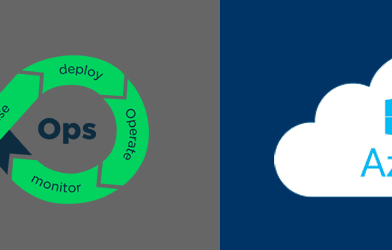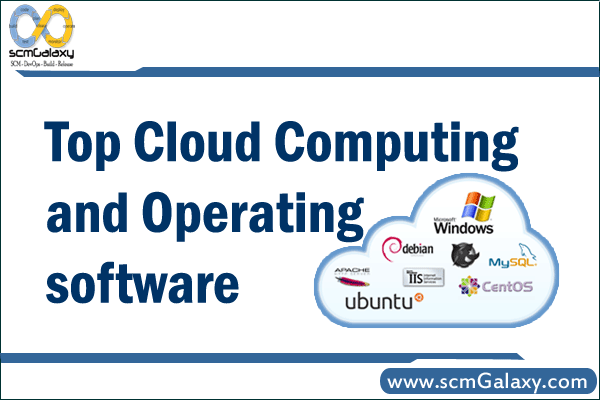Category: CLOUD COMPUTING AND OPERATING SOFTWARE
How to become a Google Cloud Professional Engineer?
Google Cloud are future major cloud admin ability within the coming back years. Google is increasing its market reach within the cloud supplier domain mistreatment strategic partnerships and tons of funding for the purchasers. So, little question that GCP goes to dominate the cloud domain within the coming back years.
Google Cloud includes a mixture of services obtainable over the web which will facilitate organizations go digital. Google Cloud Platform (which provides public cloud infrastructure for hosting web-based applications and is that the focus of this journal post) could be a part of Google Cloud. Some other services that area unit a vicinity of Google Cloud include:
Google Cloud DevOps Engineer Professional

A Professional Cloud DevOps Engineer is somebody, accountable for economical development of operations which will balance service dependableness and delivery speed. They’re knowledgeable at mistreatment Google Cloud Platform to create software system delivery pipelines, deploy and monitor services, and manage and learn from incidents.
Getting a certification in Google Cloud provide you with Associate in Nursing ample opportunities to own a productive career in cloud computing. to assist you together with your preparation for the GCP skilled Cloud DevOps engineer examination, I actually have listed seven free on-line courses that you just will use to find out each cloud computing and DevOps and pass the Google Cloud skilled Cloud DevOps Engineer.
The skilled Cloud DevOps Engineer examination assesses your ability to:
- Apply web site dependableness engineering principles to a service
- Optimize service performance
- Implement service observance ways
- Build and implement CI/CD pipelines for a service
- Manage service incidents
Who should take the Google skilled Cloud DevOps Engineer Exam?
Candidates ought to ace at the applying of Google Cloud Platform in building software system delivery pipelines, deploying and observance services, and managing and learning from incidents.
The skilled Cloud DevOps Engineer examination is primarily designed for these professionals –
- On-premises IT system directors
- Cloud answer architects and application developers
- DevOps professionals with business expertise
- Aspiring DevOps professionals with restricted GCP expertise
- On-premise system engineers
Expertise
Google Cloud DevOps Engineer is one of the best Certification because it validates the experience of the candidates in –
- Applying web site dependableness engineering principles to any service
- Optimizing service performance
- Implementing service observance ways
- Building and implementing CI/CD pipelines for a service
- Managing service incidents
About this certification examination
- Length: 2 hours
- Registration fee: $200 (plus tax wherever applicable)
- Language: English
- Exam format: Multiple selection and multiple choose
Why Google Cloud Certification?

The national average earnings for Cloud DevOps Engineer is ₹9, 14,163 annually in Bharat. Filter by location to ascertain Cloud DevOps Engineer salaries in your space.
This Certifications assist you advance your skilled skills and demonstrate your value to hiring managers. Conjointly once you become Google Cloud certified, you unlock the subsequent benefits:
- Distinguish yourself with a digital badge by sharing it on your social profile or resume.
- Showcase your action on a publicly-accessible Google Cloud Certified Directory.
- Get access to international cloud virtual and in-person events hosted by Google Cloud.
I hope you discover this specific data useful, and if you furthermore might reaching to become a google cloud certified skilled then I wish to recommend you Institute can offer you best coaching by consultants.
DevOpsSchool, One of best Institute that provides the Best Google Cloud Certified DevOps Professional online training and certification program by Experts. This Institute provides this Certification training in both online and offline Classroom mode in top cities of India like Cities like Hyderabad, Bangalore, Chennai, Pune, Delhi, etc.
Thank you!!
How to become an AWS Certified Solution Architect Associate?
Amazon Web Services is one the most popular and most widely used Infrastructure as a Service (IaaS) cloud in the world. Cloud computing is dominated by two major players: Amazon Web Services (AWS) and Azure. If we comparing between AWS and Azure, AWS has a significantly larger market share, with a 47% share of the cloud computing market. Since AWS is by far the largest cloud computing service provider in the world today, a job as an AWS Solutions Architect is one with plenty of promises and pay.
If you’re an administrator, engineer, architect or consultant looking to familiarize yourself with AWS, this is the course for you. You will learn advanced design principles, like strategies for consolidated billing and also learn account access and various connectivity methods.
Who is an AWS Certified Solution Architect Associate?

AWS Solutions Architect is an IT professional, responsible for deploying applications to infrastructure in the AWS cloud. In a simple word, an AWS Solutions Architect use skills and expertise to help develop advanced cloud-based solutions and migrate existing workloads to the cloud. They mainly responsible for:
- Finding solution to business problems with technology implementation
- Identifying the right platform, programming language, and framework for creating a solution
- Take decision on system maintenance and future scaling
- Finding and Minimizing the risks associated with third-party platforms
- Ensuring that infrastructure and architecture are well implemented
- Monitor systems on regular basis to ensure that all business goals are met
- Ensuring sustainability of configuration management
What are the benefits of AWS Certified Solutions Architect Associate Course?
One of the major challenges faced by businesses nowadays is the shortage of AWS certified professionals. Thus, there is a huge demand for cloud computing professionals.
If you are an AWS certified professional, your knowledge, skills, familiarity, and understanding of AWS will be validated. An AWS Certification will demonstrate that you have the most in-demand expertise in the industry.
AWS Certified Solutions Architect Course Training Intermediate Cloud Platforms. This certification demonstrates an individual’s ability to navigate and use the AWS Certified Solutions Architect Course Training Intermediate Software.
There are numerous advantages to becoming AWS certified. Amazon Web Services certifications…
- Advanced your skills and knowledge in the preeminent cloud computing platform.
- Consistently listed among the top paying certifications worldwide.
- Recognized by industry-wide as reliable and also well-designed.
- Redefine your credibility and dedication to your cloud engineering career path.
Salary in India

Since the inception of AWS, people with AWS knowledge have always been one of the biggest highlights of any report, discussion, or news on skills and salaries in the IT industry.
People who pursue to become AWS architects or developers have a very bright future not only when it comes to their salaries but also the scope of progress in their respective careers.
According to the report, the average AWS salary in India starts from Rs. 7, 12,000 per annum. It could even start at Rs. 4, 10,000 per annum if you don’t get a chance to work at a top firm or don’t have relevant experience. It could reach a high of Rs.1, 821,000 per annum depending not only on the company you are employed at but also your location.
AWS salary in India can be affected by multiple factors. Let’s see some primary salary affecting factors:
- Location
- Experience
- Employer
- Skillset
Exam Details
| Exam Details | |
| Name of the Exam | AWS Certified Solution Architect Associate |
| Exam Code | SAA-C02 |
| Technology | AWS |
| Prerequisites | None |
| Exam Duration | 130 Minutes |
| Number of Questions | 60-70 Questions |
| Registration Fee | $150 USD |
| Exam Language | English, Japanese |
Conclusion
One thing is sure clear from the above discussion that an AWS solution architect is one of the most important edge role of any IT project. In this blog you also seen a clear picture of the salaries for someone who are willing to pursue solution architect certification can expect to get. And also, AWS is constantly evolving and is coming up with newer updates and service additions every few years.
So pursuing an AWS solution Architect certification is a good choice to go.
If you also want to become an AWS certified solution architect and pursue a career in this IT field then I would like to suggest you DevOpsscool, one of the best institute for this certification to start your journey to become an AWS certified solution architect in near future.
By devOpsscool
What is DevOps and AZURE DEVOPS?
Introduction
Guys, today in this blog you will learn in detail about DevOps and Azure DevOps, so let’s know what is DevOps and Azure DevOps. DevOps is a term of the two words ‘development’ and ‘operations’. DevOps is not a technology, it is a combination of cultural, practices, and tools that increases an organization’s ability to deliver applications and services. Azure is one of the fast growing cloud computing platform. Microsoft Azure DevOps is built on multi-tier, scalable architecture. It is comprises a range of services covering the full development life-cycle.
What is DevOps?
DevOps is a software development methodology where the Development team & Operations team work as a together. After adopting DevOps, it helps to increase the speed of an organization to deliver applications and services. And it can be defined as the alignment of development and IT operations with better communication and collaboration. And those who are devops engineers use many tools for development & operations process so that our life becomes easy. Like these popular DevOps tools are:- Docker, Git, SVN, Maven, Jenkins, Selenium, Kubernetes, Puppet, Chef, SaltStack, Nagios, Splunk, etc.
How DevOps works in the Enterprise?
You can see through the image.

Works flow of DevOps
Below you can see works of DevOps by following each phase of the DevOps life cycle which includes continuous development, continuous integration, continuous testing, and continuous deployment.
• Continuous Development – Plan application objectives and code the requirements
• Continuous Testing – Verify the product for actual usage in a live environment
• Continuous Integration – It Plan tests and build the product
• Continuous Deployment – Ensures product is deployed with maximum accuracy
• Continuous Monitoring – It Monitor the product output and find the problem areas
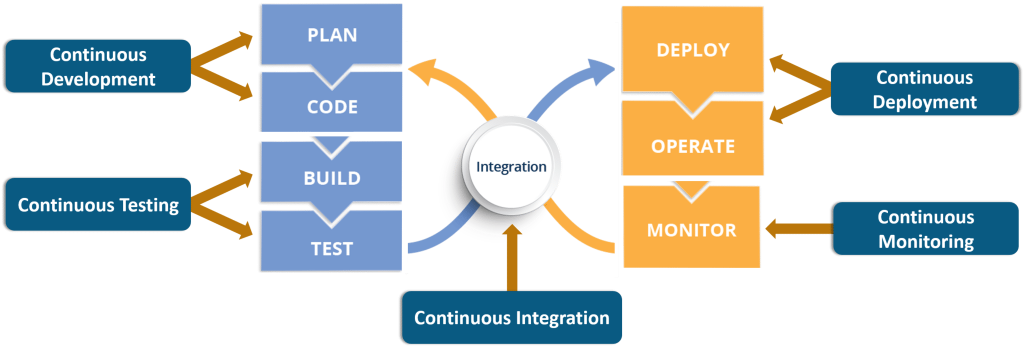
Here are the some Benefits of DevOps:-
- DevOps ideology encourages a completely new way of thinking and decision-making.
- DevOps certified professionals are among the highest-paid in the IT industry.
- The market demand is increasing rapidly with its increased implementation worldwide.
- It ideology promotes increased collaboration and communication between the operation and development teams.
- You learn to work in a team consisting of cross-functional team members—QA, developers, operation engineers, and business analysts.
Here you see Salary of DevOps Engineer:-
According to payscale.com, the demand for DevOps is high but companies require individuals to have the correct skill sets. Additionally, the better the experience, the higher is the salary. The average devops salary in India, according to Payscale, is Rs 674,202 per year, inclusive of bonuses and profit-sharing.
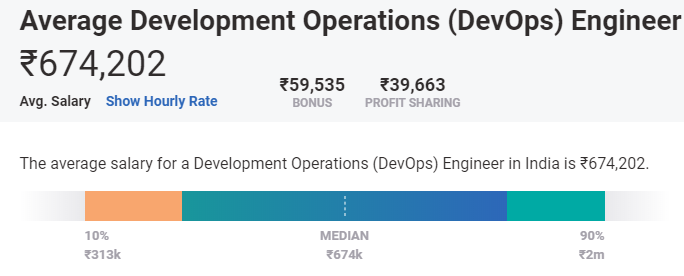
Below you can get complete knowledge of Microsoft Azure and Azure DevOps by source of DevOpsSchool.com.
What is Microsoft Azure?
Now, lets know about Microsoft Azure, It is a cloud computing service created by Microsoft that is one of the leading cloud service providers, and day-by-day many organizations are opting for Azure to get the best technologies for efficient computations. Its use will help you to build, deploy, and manage applications through your globally owned network of data centers.
What is Azure DevOps?
Now, lets know about Azure DevOps, it is a mixture of the simplest of technology and therefore the application of best practices. We can say, It is the Next Big thing in IT Industries. Azure DevOps is a Software as a service (SaaS) platform from Microsoft that provides an end-to-end DevOps toolchain for developing and deploying software. Microsoft recently launched this as a result of they perceive that DevOps has become more and more vital to a team’s success. It’s concerning culture and an amendment within the manner we tend to do things, yet as our mental attitude. Azure DevOps captures over fifteen years of investment and learnings in providing tools to support software packages, development groups. more to the present.
How does Azure DevOps work?
In the easiest terms, Azure DevOps is the evolution of VSTS (Visual Studio Team Services). Azure DevOps works both public and private cloud configurations – the services include:
- Azure Boards – A work tracking system with Kanban boards, dashboards, and reporting
- Azure Pipelines – A CI/CD, testing, and deployment system that can connect to any Git repository
- Azure Repos – A cloud-hosted private Git repository service
- Azure Test Plans – A solution for tests and capturing data about defects
- Azure Artifacts – A hosting facility for Maven, npm, and NuGet packages
Azure DevOps use cases include – 1. Planning 2. Developing 3. Delivery 4. Operations
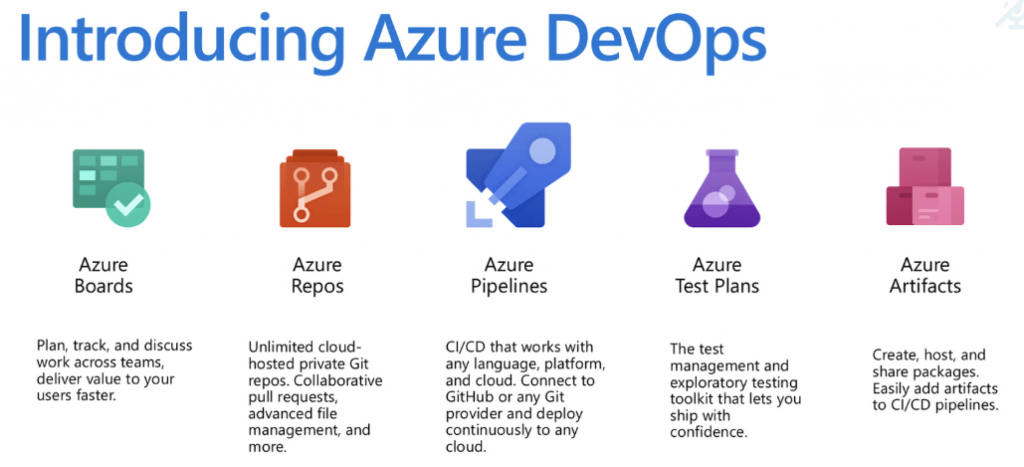
How to become a Azure DevOps Certified Engineer and list of the various certifications:–
If you want to become a Microsoft Azure DevOps Certified Engineer: then, you must earn at least one of the following: Microsoft Certified: Azure Administrator Associate, Microsoft Certified: Azure Developer Associate certification.
These are Best Microsoft Azure Certification:-
- Microsoft AZ-900 Certification: Azure Fundamentals course
- AZ-104 Azure Administrator Exam Certification course
- Microsoft AZ-400 Azure DevOps Certification course
- AZ-204 Developing Solutions
- AZ – 303 Microsoft Azure Architect
- AZ – 304 Microsoft Azure Architect Design
- Microsoft AZ-500 Certification: Azure Security Technologies course
Below you can path of Azure Certification:-
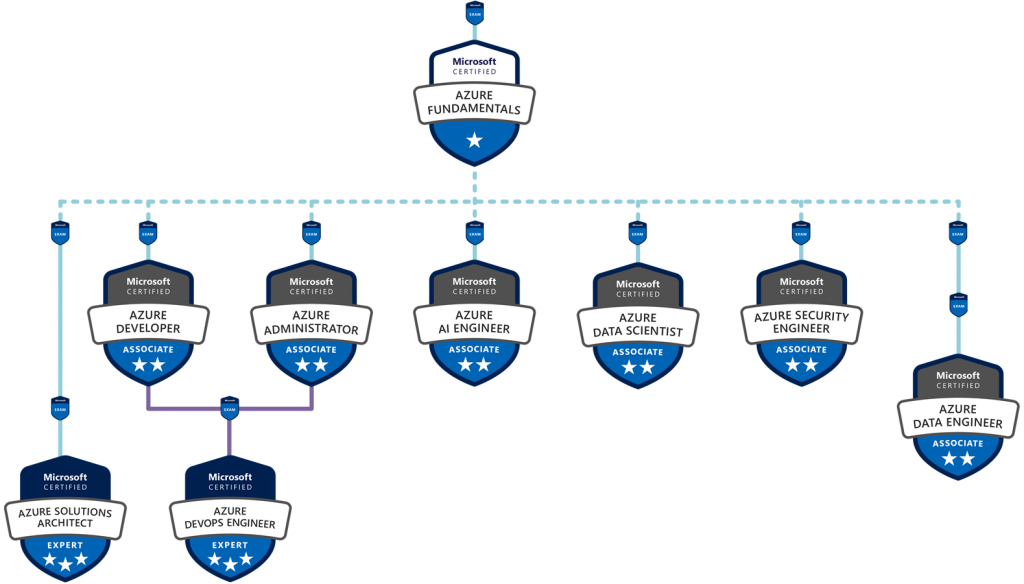
Pre-Requisites for Microsoft Azure course
- Basics of Networking
- Basics of the MS Azure Platform
- Basic concepts related to operating systems
- Basic familiarity with infrastructure paradigms such as active directory and PowerShell
What is the Salary of Azure DevOps Engineer?
Here I am going to share with you the average salary of an Azure DevOps Engineer. If you are working at a product-based company, then the salary ranges start from ₹16L to ₹42L per year. And the average salary of an Azure DevOps Engineer working at a service-based company can range start from ₹5.5L to ₹23L per year.
These are some Popular Courses of Azure:-
- Master in Azure DevOps Certification
- Master in Azure Architect Technologies
- Microsoft Azure Security Technologies
What are the Difference Between DevOps and Azure DevOps?
DevOps is basically a culture and it is really hot at the moment and is revolutionizing the workplace. It is the bridge closing the gap between Development and Operations team and bringing them together. DevOps is achieved through tools, processes, and automation, but, even more than that, through a change in organizational culture.
Azure DevOps is a Software as a service (SaaS) platform from Microsoft that provides an end-to-end DevOps toolchain for developing and deploying software. It is a mixture of the simplest of technology and therefore the application of best practices. Azure DevOps works both public and private cloud configurations.
If you are planning to become an Master in Azure DevOps Engineer, and searching to the best institute for preparing for Azure certifications, then I would suggest you one of the best Institutes that is DevOpsSchool.com. This institute has 10 to 15+ years of experienced trainers who providing you quality training with industries requirement.
I am going to share with you some videos, then you can get some overview of DevOps and Start to learn Azure DevOps course.
DevOps Fundamental to Advanced Tutorial for Beginners
Microsoft Azure Fundamental Tutorial | AZ-900 Certification
Why Choose DevOpsSchool | Reviews | Testimonials | Learner’s Feedback
I hope this tutorial is very helpful for you!
Keep learning! Best of Luck
Bootstrap checks failed with ec2 private ip
scmuser created the topic: bootstrap checks failed with ec2 private ip
[2017-05-11T21:04:29,597][INFO ][o.e.n.Node ] initialized
[2017-05-11T21:04:29,598][INFO ][o.e.n.Node ] [xzraf9y] starting ...
[2017-05-11T21:04:29,742][INFO ][o.e.t.TransportService ] [xzraf9y] publish_address {172.31.18.245:9300}, bound_addresses {172.31.18.245:9300}
[2017-05-11T21:04:29,748][INFO ][o.e.b.BootstrapChecks ] [xzraf9y] bound or publishing to a non-loopback or non-link-local address, enforcing bootstrap checks
ERROR: bootstrap checks failed
max file descriptors [4096] for elasticsearch process is too low, increase to at least [65536]
max virtual memory areas vm.max_map_count [65530] is too low, increase to at least [262144]
[2017-05-11T21:04:29,758][INFO ][o.e.n.Node ] [xzraf9y] stopping ...
[2017-05-11T21:04:29,774][INFO ][o.e.n.Node ] [xzraf9y] stopped
[2017-05-11T21:04:29,774][INFO ][o.e.n.Node ] [xzraf9y] closing ...
[2017-05-11T21:04:29,786][INFO ][o.e.n.Node ] [xzraf9y] closed
Top 10 Cloud Platforms | List of best Cloud Platforms

Cloud computing is one of the trends which is going in IT industry these days. The traditional way of building IT environment is now shifting towards the cloud computing. This is the reason number of cloud service provider is increasing day by day and it becomes a tough task to select good one among-st them. So, In this article I am going to tell you about the top 10 cloud platforms for cloud services.
But, before that let’s have a quick overview on Cloud platforms?
Cloud platforms are platforms that allow developers to write applications that runs in the cloud and allows users to access data, services and applications, storage over the internet and allow them to work from anywhere on it.
If we look on to the benefits of cloud platforms than these are the following benefits
1. Reducing Costs – Cloud platforms eliminating the needs of own hardware, software, licenses, servers and other infrastructures which you needs to build IT working environment which ultimately reduce your costs.
2. Productivity – As you don’t need your hardware, software and on-premises servers which means you don’t need to hire experts to maintain them which helps you in both ways first on cost savings and second the professionals can focus on other things.
3. Availability – Cloud platforms allows you to access from anywhere, on any device 24/7
4. Scalability – The best thing about cloud platforms is that you don’t need to worry about high traffic or sudden growth on traffic because cloud platforms automatically provide as many servers as required in such situations.
5. Affordability – As we mentioned above about scalability of cloud platforms where service providers allow server as per situations but it’s not cost you much because it;s not compelling you to pay for unnecessary usage of servers by automatically reduces the numbers of servers when traffic go down. You need to pay only for that sort of time when service provider allocates extra servers.
6. Migration – Cloud platforms also allow users to migrate completely from one service provider to another without losing your data.
Now, let’s check on to the service models of cloud platforms
There are three models of cloud platforms
1. SaaS – Software as a service (Saas) applications runs completely in the cloud. It enables delivery of applications over the cloud, it means you don’t need to buy, install and maintain own software. Software is managed from a central location and Just pay for what you used.
2. PaaS – Platform as a service (PaaS) This kind of cloud platforms provides you set of tools and services designed to make coding and deploying those applications quick and efficient. Means to say you can develop, runs and manage applications on the cloud.
3. IaaS – Infrastructure as a Service (IaaS) It is a kind of service where you get access to virtualized computer resources over the internet. You can get complete infrastructure solutions like hardware, software, servers, storage and other things from third party.
Now, lets move on to the next section.
Here is the list of top 10 cloud platforms.
1. Amazon Web Services

- Service Model – IaaS
- Deployment Model – Hybrid, Private & Public Cloud
- Server operating system – Linux & windows
- Auto Scaling
- Block Storage
- VPN Access
- Cloud Storage
- Database as a Service
- Deploy servers
- DNS management
2. Microsoft Azure Cloud

- Service Model – PaaS
- Deployment Model – Private Cloud
- Server operating system – Linux windows
- Auto Scaling
- Block Storage
- Cloud Storage
- Content Delivery Network
- Deploy Servers
- Disaster Recovery
- VPN Access
- DNS Management
- Database as a Service
3. Google

- Service Model – IaaS
- Deployment Model – Public Cloud
- Server operating system – Linux & windows
- Cloud Storage
- Docker Support
- Load Balancing
- Firewalls
- Snapshots
- API (Application Programming Interface)
- Web Based Application/Control Panel
4. Rackspace

- Service Model – IaaS
- Deployment Model – Hybrid Cloud, Private Cloud, and Public Cloud
- Server operating system – Linux & windows
- Auto Scaling
- Block Storage
- Cloud Storage
- Content Delivery Network (CDN)
- Database as a Service
- Deploy Servers
- DNS Management
5. VMware

- Service Model – IaaS
- Deployment Model – Hybrid Cloud
- Server operating system – Linux & windows
- Auto Scaling
- Cloud Storage
- Load Balancing
- System Monitoring
- Web Based Application/Control Panel
- API (Application Programming Interface)
6. Salesforce

- Service Model – PaaS
- Deployment Model – Public Cloud
- Server operating system – Linux & windows
- Auto Scaling
- File Storage
- Firewalls
- Flexible Storage Services
- System Monitoring
7. Oracle

- Service Model – PaaS
- Deployment Model – Private Cloud and Public Cloud
- Server operating system – windows
- Block Storage
- Cloud Storage
- Database as a Service
- Object Storage
8. IBM

- Service Model – IaaS
- Deployment Model – Hybrid Cloud and Private Cloud
- Server operating system – Linux & windows
- Web Based Application/Control Panel
- API (Application Programming Interface)
- Messaging Services
9. Red Hat

- Service Model – PaaS
- Deployment Model – Hybrid cloud and Private Cloud
- Server operating system – windows
- Auto Scaling
- Horizontal Scaling
- Snapshots
- Vertical Scaling
- API (Application Programming Interface)
- Command Line
- Graphical User Interface
10. Heroku

- Service Model – PaaS
- Deployment Model – Public Cloud
- Server operating system – Linux & windows
- Auto Scaling
- Horizontal Scaling
- Control Interface-Command Line
So, this is my list of top cloud platforms which are trending these days. But, if you think about some other platforms than feel free to share with us in the comment section below.
Top Cloud computing and operating software
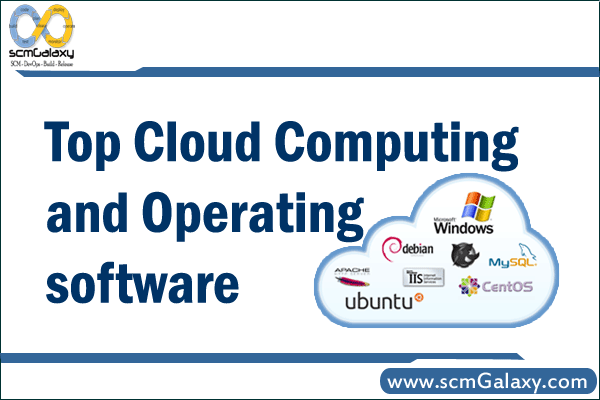
Top Cloud computing and operating software.
OpenStack is a free and open-source cloud-computing software platform.[2] Users primarily deploy it as an infrastructure-as-a-service (IaaS). The technology consists of a group of interrelated projects that control pools of processing, storage, and networking resources throughout a data center—which users manage through a web-based dashboard, through command-line tools, or through a RESTful API. OpenStack.org released it under the terms of the Apache License.
CloudStack is an open source cloud computing software for creating, managing, and deploying infrastructure cloud services. It uses existing hypervisors such as KVM, VMware vSphere, and XenServer/XCP for virtualization. In addition to its own API, CloudStack also supports the Amazon Web Services (AWS) API and the Open Cloud Computing Interface from the Open Grid Forum.
Best Cloud Computing and Operating Tools

Top Cloud computing and operating software.
OpenStack is a free and open-source cloud-computing software platform.[2] Users primarily deploy it as an infrastructure-as-a-service (IaaS). The technology consists of a group of interrelated projects that control pools of processing, storage, and networking resources throughout a data center—which users manage through a web-based dashboard, through command-line tools, or through a RESTful API. OpenStack.org released it under the terms of the Apache License.
CloudStack is an open source cloud computing software for creating, managing, and deploying infrastructure cloud services. It uses existing hypervisors such as KVM, VMware vSphere, and XenServer/XCP for virtualization. In addition to its own API, CloudStack also supports the Amazon Web Services (AWS) API and the Open Cloud Computing Interface from the Open Grid Forum.
Cloud Computing and ROI
Cloud Computing and ROI
Most think cloud computing is about the ability to save operational costs. That may or may not be the case, depending upon your enterprise or ecommerce problem domain. Indeed, there are many dimensions to consider here, including:
- Ongoing operational cost reduction.
- The value of preserving capital.
- The value of upsizing on-demand.
- The value of downsizing on-demand.
- The value of shifting the risk.
- The value of agility.
Let’s explore each:
Operational Cost Reduction
We all know that cloud computing is cheap…okay, cheaper…okay, it can be cheap. Thus it’s a good idea to figure out the actual cost reductions that cloud computing can bring to your enterprise IT. The trick here is not only to figure out how much money can be saved, but how much it will cost to save that money.
Preserving Capital
It’s money in the bank which allows the business to run. The more money we have in the bank, the more we can purchase things for the core business such as inventory that can be sold, or new plant equipment that will save the company money during production. In any event, it’s good to keep as much capital as possible on hand to invest in the business, and not into infrastructure such as data centers, hardware, and software.
Upsizing On-Demand
Core to the ability to preserve capital is the ability to upsize your IT infrastructure on demand, or simply pay more operational dollars for additional computing capacity which would traditionally require a capital expenditure. Many cloud computing providers call this being elastic, or the ability to grow or contract to accommodate the business. For example, you can call upon the cloud computing provider to support an additional user and processing load through the holiday, when considering ecommerce solutions.
Downsizing On-Demand
Like upsizing on-demand, you need to consider what it will take to reduce computing capacity and dollars paid. What does it take to scale down in case you no longer need the computing resource and want to reduce costs as well? Such is the case within many ecommerce systems with capacity requirements that are seasonal.
Shifting the Risk
Another core value of cloud computing is the ability to shift the risk from your enterprise to the cloud computing provider. This concept refers to the fact that, since it’s up to the cloud provider to handle the computing processing load and you’ll pay by use, then it’s possible to reduce the risk that you’ll run out of capacity to support your customers and core business processes. The risk functionally shifts to the cloud provider who is better suited to accept that risk.
Agility
Agility means the ability to change the IT infrastructure faster to adapt to the changing needs of the business, such as market downturns, or the introduction of a key product to capture a changing market. This, of course, provides a strategic advantage and allows the business to have a better chance of long-term survival. These days many enterprises are plagued by IT infrastructures that are so poorly planned and fragile that they hurt the business by not providing the required degree of agility.
Article Source: http://www.getelastic.com/cloud-computing-and-roi/
Overcoming Cloud Computing Obstacles – Cloud Computing adoption challenges
Overcoming Cloud Computing Obstacles
How to Make the Case to Switch to the Cloud
Companies choosing the cloud computing route often have to make the case for the switch to new technology to a board or investors. The most common obstacles raised towards adoption of cloud technology are concerns around the availability of service, security and auditability of company data and performance issues around data transfer or loading speeds.
Availability of Service
The utility computing economy is currently such that competition is growing among providers. There are a few large, corporate providers of cloud services, such as Amazon and Google, as well as a large handful of small and medium players in the market. The number of companies jumping on the cloud provision bandwagon is growing very rapidly, and because of this, there is great focus on providing a reliable and stable service. Many providers will offer their clients a Service Level Agreement (SLA), stating the acceptable levels of unplanned service downtime, as well as what amount of compensation is available should the SLA be breached. Companies signing up with a cloud provider should look for an SLA offering at least 99.9% availability, but preferably 99.99%. The best way to ensure full systems available for a company’s cloud services is to engage more than one cloud provider for the provision of the same service. This way, if something should happen to the first provider, the second one will be able to pick up the slack.
Security and Auditability of Company Data
Many cloud computing providers offer data encryption as part of their service. Small and medium sized businesses, that are not accountable to regulatory bodies can probably use the standard encryption technologies provided by most utility computing services. Companies, such as small investment firms or hedge funds, will need to invest in higher security measures for storing data in the cloud. By nature, most of the cloud computing infrastructures currently available by mainstream providers are what is known as public clouds. (Armbrust, et al) This means that computer systems are purposed for general use among all customers, and no distinction is made as to which company is using what hardware. This is generally fine for the standard SME, but those requiring data audit capabilities will need what is known as a private cloud. The private cloud is a collection of computing systems that has been walled off, both physically (in a caged area of a data center) and logically, using combinations of Virtual Private Networks (VPN), firewalls and, often, private leased line data connections which are installed to directly connect a company to its cloud service provider.
Performance Issues
There is often concern around the performance of data transfer within cloud applications. However, it has been shown that, generally, once data has been transferred to the cloud, the speeds of transfer between cloud servers is then much faster than it was on local drives. This is because most current cloud computing infrastructure is far more powerful than what is normally seen in SMEs. The obstacle here is the initial transfer of data onto the cloud service. This can be overcome by loading all data on portable hard drives and shipping it to the cloud service provider for the initial load. Generally, once the initial load is complete, subsequent file transfers will be much smaller in size. Exceptions to this are the data-intensive users of elastic cloud services. For these users, hard drive transfer would currently still be the most economically viable option, but there is evidence that the cost of a private leased line may decrease in future as the cost of high-end routers decreases. (Armbrust, et al)
With a careful analysis of company IT infrastructure requirements, and an appropriate plan to minimize the risks associated with the top obstacles to adoption of cloud computing, business now have the opportunity to adopt a technology which has matured over the past decade into a feasible manner in which to provide reliable and efficient corporate computing at the fraction of the cost of a full IT hardware refresh.
Article Source:



